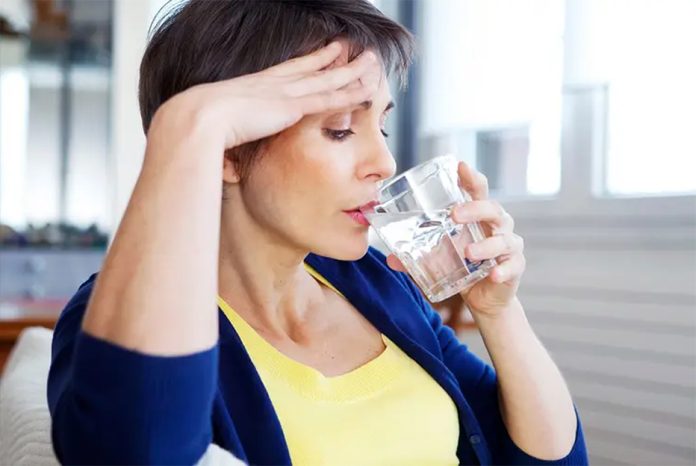You may already know stress, weather, alcohol, and certain smells and foods can be potential triggers for your migraine headaches. But did you know dehydration can be a culprit, too? The American Migraine Foundation says about one-third of people with migraine say lack of fluid intake or being dehydrated can set off an attack.
Even people who don’t get migraine headaches can have dehydration headaches when they don’t get enough fluids. These headaches may not feel as intense as a migraine attack but can still be uncomfortable.
The truth is, dehydration and head pain can go hand in hand. Some people get dehydration migraine headaches – meaning their migraine symptoms are triggered by dehydration. And some people get dehydrated as a result of their migraine attacks. The relationship can go both ways.
What Is the Relationship Between Dehydration and Migraine Headaches?
Your body needs a certain amount of fluids and electrolytes (minerals that regulate body functions) to work its best. You need to replace minerals like potassium and sodium throughout the day as your body loses fluids through sweat and peeing. Normally, you get the fluid and minerals you need from what you eat and drink.
When you don’t replace enough fluids and electrolytes, dehydration can set in and trigger a migraine headache. One possible reason is that a lack of fluids can make your brain tissues shrink and pull away from your skull, putting pressure on nerves. Another possibility is that dehydration makes you feel all sorts of pain more intensely. The exact cause of the link isn’t known.
When you’re dehydrated, you also can get cranky and have problems concentrating, which might make a headache seem worse.
Even mild dehydration can be a migraine trigger. Some things that can cause dehydration, aside from not drinking enough fluids, include:
You may also be at a higher risk of dehydration if you:
- Are at a high altitude
- Are an older adult or a young child
- Have a chronic illness like diabetes
- Take medication that makes you pee more
- Exercise strenuously, especially outdoors in hot weather
You might notice symptoms of dehydration at the same time your head starts to hurt or before your migraine headache starts.
When you’re mildly dehydrated, you may only have a few symptoms. You may feel:
- Thirsty
- Tired
- Sluggish
By the time you feel thirsty, you may already be mildly dehydrated. If dehydration goes on longer, your other symptoms may include:
- Extreme thirst
- Confusion and disorientation
- Dizziness and fatigue
- Reduced peeing
- Dark-colored pee
- Increased heart rate
- Low blood pressure
Moderate to severe dehydration is a medical emergency. Seek medical help right away if you have any of the above symptoms.
What Do Dehydration-Triggered Migraine Headaches Feel Like?
Migraine headaches triggered by a lack of fluids can come with very specific symptoms for some people. Many describe them as “hangover headaches.” The pain may be pulsing.
As with most migraine headaches, bright lights can make them worse, and bending over or moving your head around also increases pain. You may feel pain on one side only, in the back, front, or all over your head. Some people have pain around their face, sinuses, neck, or jaw.
The headache phase of a migraine attack can last from 4 to 72 hours.
Other symptoms of a migraine attack can include:
- Mood changes, trouble sleeping, trouble concentrating, and other problems that start up to 24 hours before your headache
- Auras, which are symptoms such as visual disturbances or ringing in your ears, that start before or during your headache
- Nausea and vomiting
- Tiredness, dizziness, a stiff neck, and other symptoms that last for up to 48 hours after your headache
Dehydration Migraine Treatment
You might be able to stop a dehydration migraine headache by drinking a glass of water.
One study found that people who had a dehydration-triggered migraine attack got relief within 30 minutes after drinking fluids.
But migraine is a chronic neurological condition with many potential triggers. So it’s important to talk to your doctor about the best treatments to lessen your headaches and other migraine symptoms, regardless of whether they are triggered by dehydration.
- Medications you take at the first sign of an attack
- Medications you take to prevent migraine attacks
- Lifestyle changes to avoid triggers – which for some people can include not only dehydration, but stress, hormonal changes, weather changes, sleep disturbances, missing meals, and exposure to bright light, noises, or strong smells
Credit: webmd









